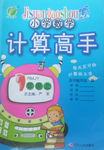题目内容
Many books have been written about " the art of giving". And we also know that it's hard to give people a gift, (1) a personal one. If we want to make it better, we should understand who you will give the gift to and their likes and (2)
As is often the case,some little kids think they don't get enough gifts (3) some old people think they get too many gifts. Different people like different kinds of gifts. Some presents are never too (4) . For example, when a little child just gives his or her mother a leaf from a tree,it is enough to make her very (5)
Gift giving is different in different (6) Here are some of their likes. In Japan, people sometimes give special gifts. But they are not opened. Later, the same gift may be given away to someone (7) ,because many people have enough things and don't want (8) gifts themselves. In Canada, a tree can help remember (9) In the USA,some people ask their families and friends to give money to charity rather than buying them gifts. In Sweden, doing something for someone is the best gift. People don't need to (10) too much money. Instead, making a meal for him or her is enough.
To make things (11) ,some people would rather just give money. In some cultures, however, (12) money can make people uncomfortable. "When someone gives me money, it just makes me think they're being lazy,"says John Wilson. "In England, we have a saying:It's the thought that (13) . When someone gives me money, I feel they don't think about it at all. I prefer to receive a gift (14) has some thought behind it."
Different people have very different thoughts (15) this subject. So maybe the art of giving is difficult!What do you think?
( ) 1. A. specially B. especially C. commonly D. usually
( ) 2. A. displays B. disadvantages C. disagreements D. dislikes
( ) 3. A. while B. when C. as D. if
( ) 4. A. same B. similar C. small D. huge
( ) 5. A. lonely B. happy C. sad D. angry
( ) 6. A. cities B. towns C. provinces D. countries
( ) 7. A. else B. other C . another D. else's
( ) 8. A. too much B. much too C. too many D. many too
( ) 9. A. a child B. a person C. a guide D. a chef
( ) 10. A. spend B. take C. cost D. make
( ) 11. A. more difficult B. easy C. difficult D. easier
( ) 12. A. using B. giving C. receiving D. fetching
( ) 13. A. counts B. discovers C. finds D. invents
( ) 14. A. who B. what C. where D. that
( ) 15. A. to B. on C. up D. in
1. B specially意为"专门地";especially意为"特别,尤其";commonly意为"通常,常常";usually意为"通常"。由上文it's hard to give people a gift可知,给别人送礼物很难,特别是为个人买礼物。
2. D由空格前的their likes可推知,送礼物要考虑他们喜欢什么和不喜欢什么。
3. A 由上文some little kids think they don't get enough gifts可推知,空格前后是老人与小孩认识上的对比,W此用while,表示"然而"。
4. C same意为"相同的";similar意为"相似的";small意为"小的";huge意为"巨大的"。由下文中的a leaf from a tree可知,礼物再小也不为过。
5. B lonely意为"孤独的";happy意为"高兴的";sad意为"悲伤的";angry意为"生气的"。结合上句可知,礼物再小也是一番心意。就算孩子只是从树上摘一片叶子送给妈妈,这也足以让妈妈非常开心。
6. D city意为"城市";town意为"城镇";province意为"省";country意为"国家"。由下文中的In Japan,In Canada,In the USA可知,赠送礼物因S家的不同而不同。
7. A他们不打开礼物的目的是以后可以把礼物送给别人。else意为"别的,其他的",用在不定代词someone的后面,意为"别人";other表示"别的,其他的",要用在所修饰的名词前。
8. C too much修饰不可数名词,意为"太多";much too修饰形容词或者副词,意为"太";too many修饰可数名词复数,意为"太多";many too没有这种表达。gifts是可数名词复数,要用too many修饰。
9. B child意为"孩子";person意为"人";guide意为"导游";chef意为"厨师"。由上文可知,树是作为一份礼物、代表一个人的心意而被送出的。在加拿大,一棵树可以帮助记住一个人。
10. A 主语是people,指人,表达"花费"用spend。
11. D由下文中的just give money可知,有的人为了让事情更简单,用钱作为礼物。因此,用easy的比较级easier”
12. C use意为"使用";give意为"给";receive意为"接收";fetch意为"去拿来"。由"however"表示转折可知,空格处应选与give对应的词,此处表示接受别人的钱有时会让人感觉不舒服。
13. A count意为"重要";discover意为"发现";find意为"找到,发现";invent意为"发明"。"It's the thought that counts"意为"(比起礼物来)情义更重要"。
14. D先行词是gift,指物,关系代词应用that或which。
15. B句意为:关于这个话题,不同的人有不同的想法。on意为"关于",符合语境。

 计算高手系列答案
计算高手系列答案